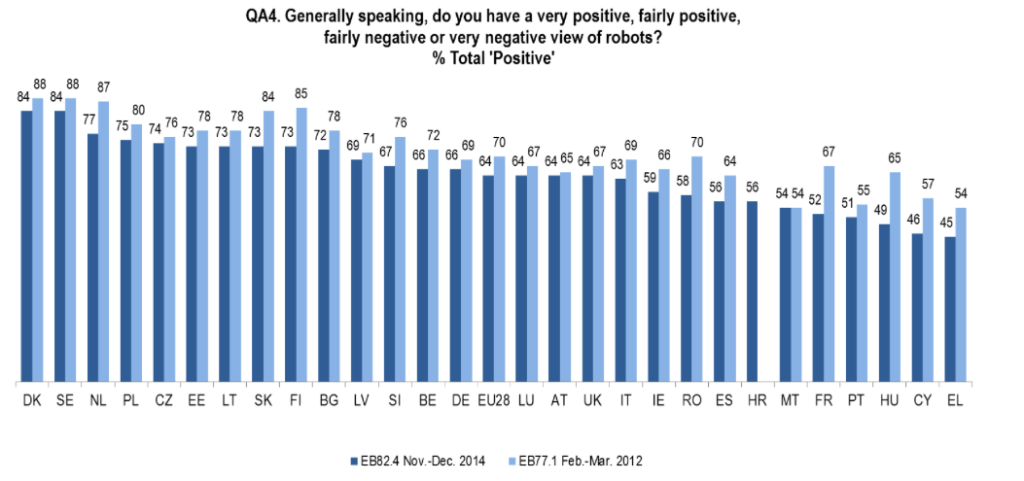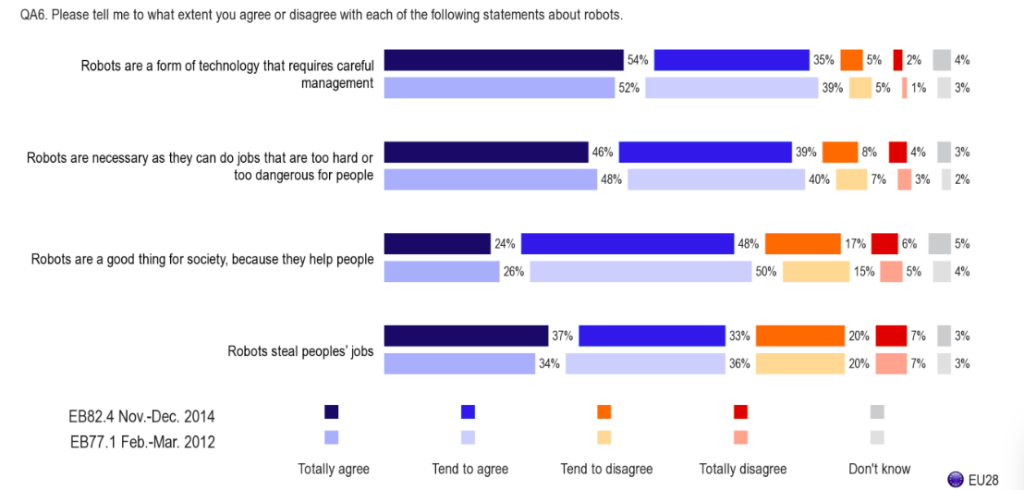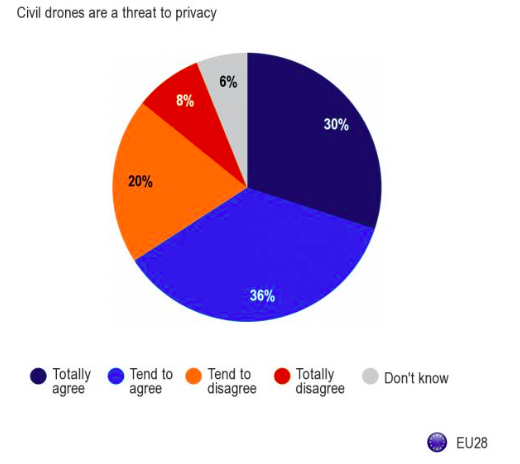
Robohub.org
Study shows public perception of robotics generally positive in EU, but declining
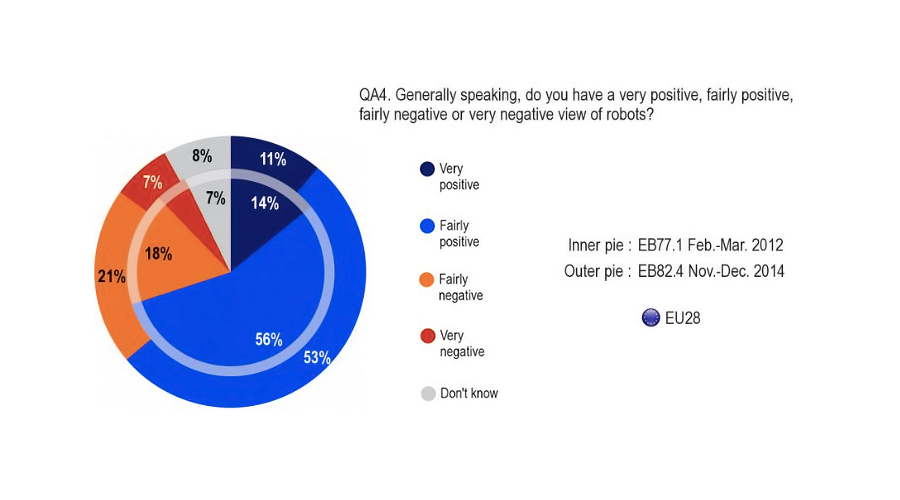
Source: Special Eurobarometer 427 – Autonomous Systems
A major study into European attitudes toward automation has found that while almost two thirds of people polled feel generally positive about robots, public acceptance of them in the EU is in decline. This comes despite the finding that personal experience with robots is on the rise, and the more personal experience people have with robots, the more favourably they tend to think of them.
The study looks at ways in which public attitudes about robotics may have changed over the last two years. In the last quarter of 2014, the Special Eurobarometer polled some 27,801 people from the 28 Member States of the European Union to gauge public attitudes and acceptance in regard to robots and automation. While 64% of people interviewed in the recent poll have a positive view of robots, this is down from the 70% reported in the previous 2012 study. With the exception of Malta, where figures remain at 2012 levels, all countries experienced a decline in the proportion of respondents who have a positive view of robots.
Though the public continues to see robots as beneficial, regulation and jobs remain key issues
While 85% agreed that robots are necessary to do dangerous or difficult jobs, this has declined 3% since 2012. Similarly, while 72% now think they are a good thing for society, 76% believed this to be the case in 2012.
A vast majority (89%) of respondents believe that robots are a form technology that requires careful management, similar to 2012 levels (91%). Likewise, 70% of respondents believe that robots steal people’s jobs – the same as in the previous study.
Mixed feelings on workplace assistants
People’s attitudes are shifting on the acceptance of robots as workplace assistants. Since 2012 several countries have recorded a sizeable decline in the proportion of respondents who say they would feel comfortable using this technology at work, including Slovakia (61%, -19 pp.), Finland (55%, -11 pp.), Slovenia (52%, -8 pp.), Denmark (65%, -8 pp.) and the Czech Republic (63%, -8 pp.). However, noticeable increases were also recorded in Luxembourg (49%, +12 pp.), Austria (49%, +8 pp.) and Malta (42%, +5 pp.).
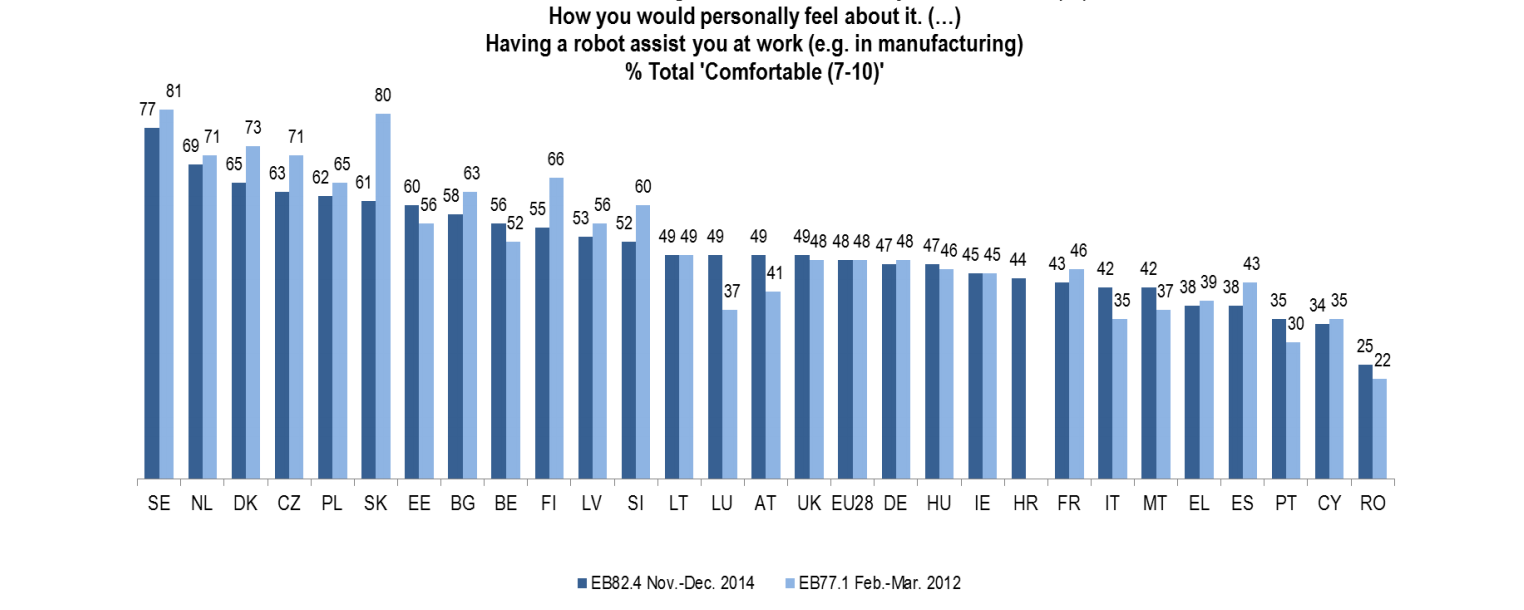
Greater acceptance of autonomous cars for transporting goods than for people
The study also looked at whether respondents would be willing to accept self-driving vehicles in the future. While only 35% of respondents reported that they would feel comfortable travelling in an autonomous car themselves, 42% were warm to the idea of having goods transported this way.
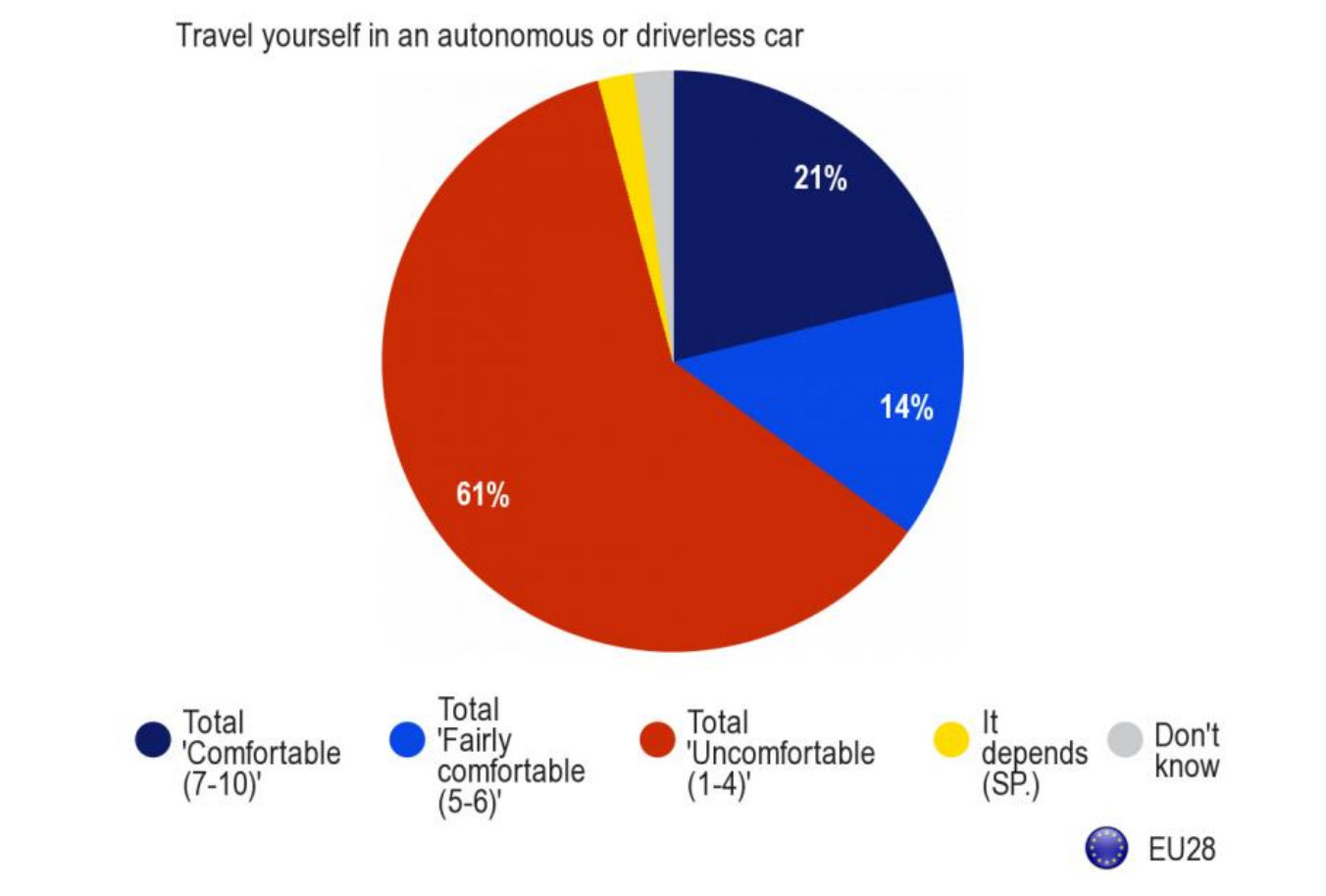
Comfort level (1-10) with travelling in an autonomous car. Source: Special Eurobarometer 427 – Autonomous Systems
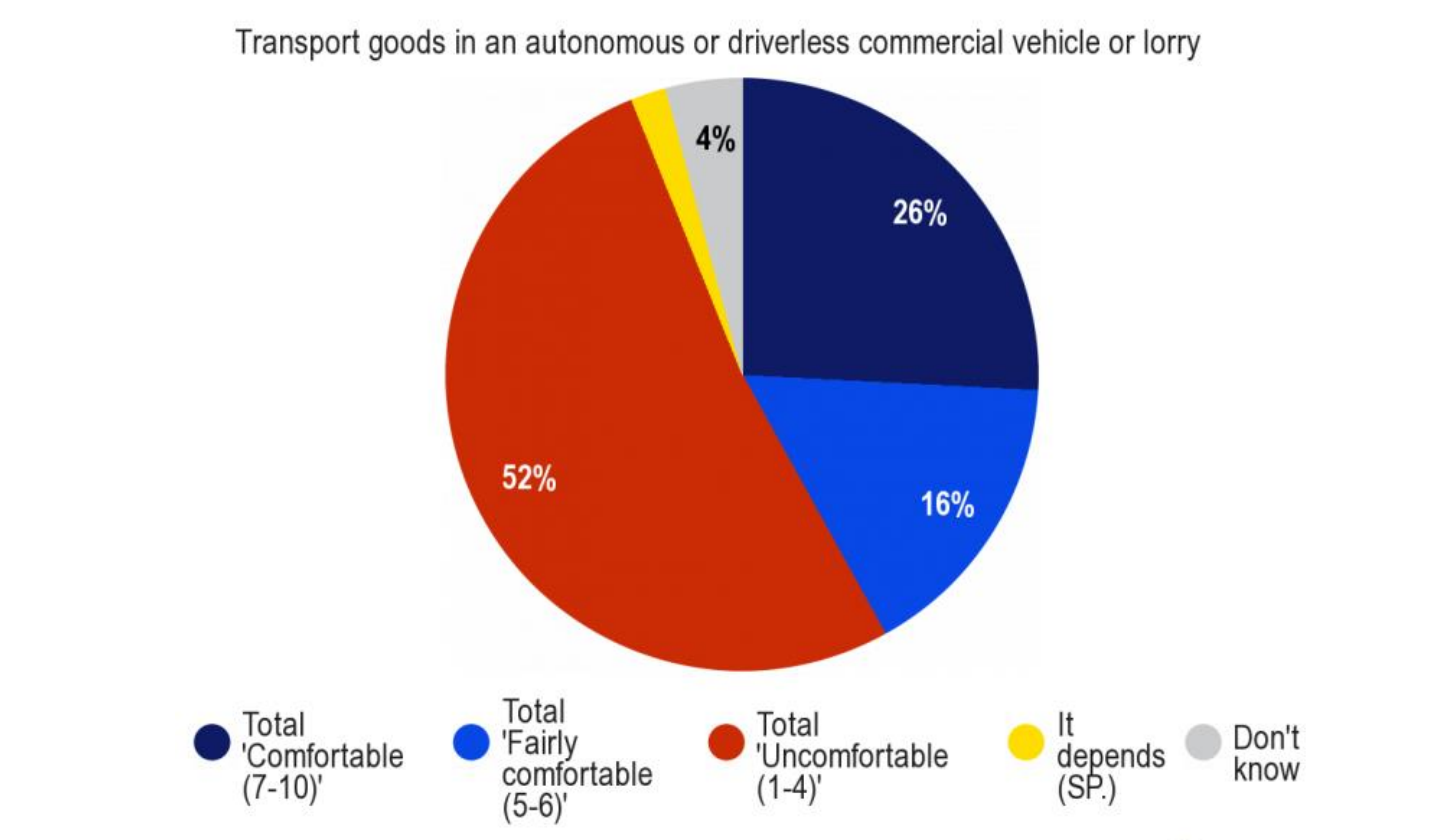
Comfort level (1-10) with transporting goods in an autonomous car. Source: Special Eurobarometer 427 – Autonomous Systems
Drones seen as bad for privacy but good for delivery
While 66% of respondents are concerned that civil drones are a threat to privacy, a majority (57%) also believe that they are an efficient way of transporting and delivering goods.
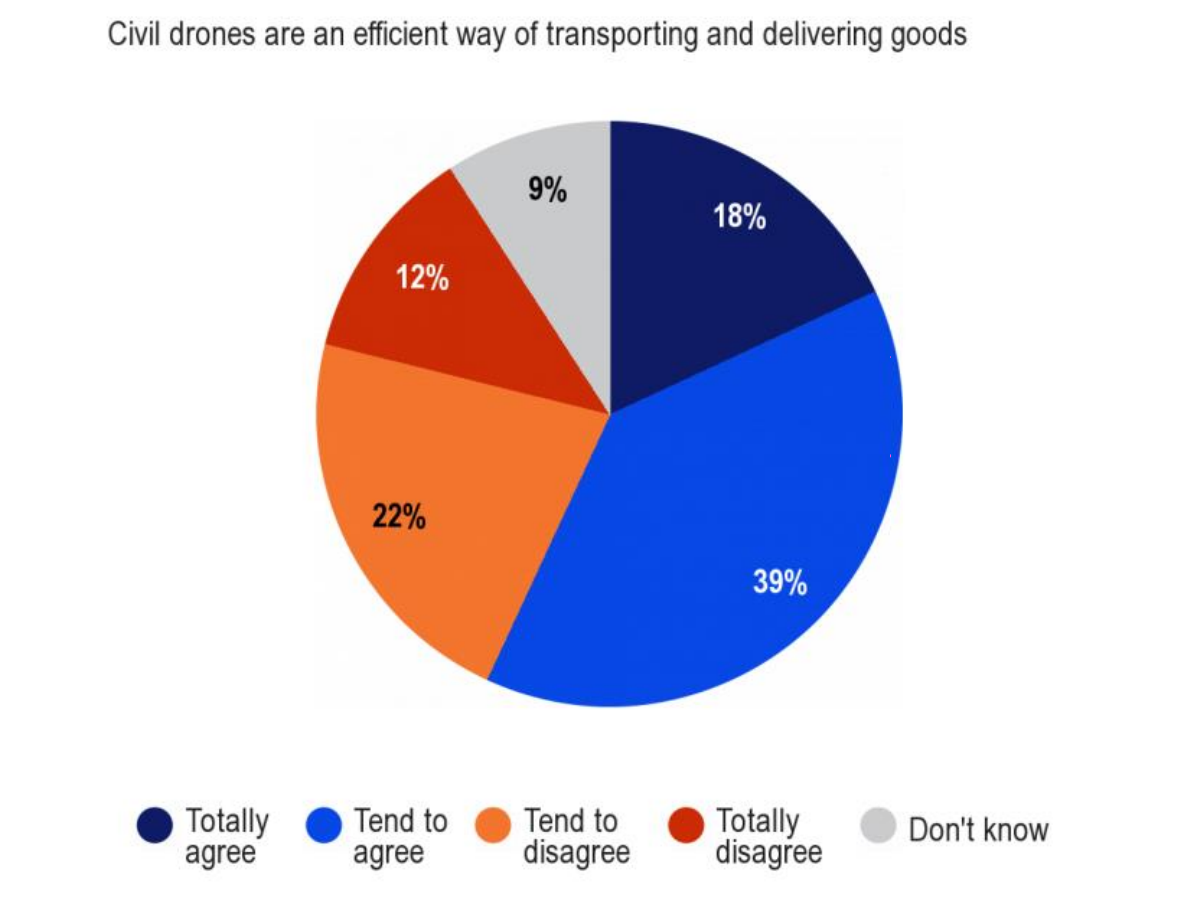
Divided continent?
The study makes use of extensive comparisons: between European states, in terms of age, employment, income and internet use. Geographically, analysis shows that people polled in southern European countries tend to be more negative and less engaged with robotics than their northern counterparts. And certain social groups also emerge as more negative and less engaged: “house persons” (42%), retirees (37%), unemployed respondents (35%) and manual workers (29%).
Robot use is on the rise, and the more people know them the more they like them
One European in seven has now used a robot either at home, at work or elsewhere; up from one in eight in 2012. Overall, when looking at the total use of robots, 24 Member States recorded an increase in the level of use of robots since 2012, with the largest increases occurring in the Czech Republic (21%, +7 pp.), Luxembourg (17%, +7 pp.) and Italy (24%, +6 pp.). Only Germany (7%, -2 pp.) registered a fall in the level of use.
The research shows that the more exposure to robots you have, the more positively you feel about them ; 82% of respondents have a positive view of robots if they have experience with them, where as only 60% of respondents have a positive view if they lack robot experience.
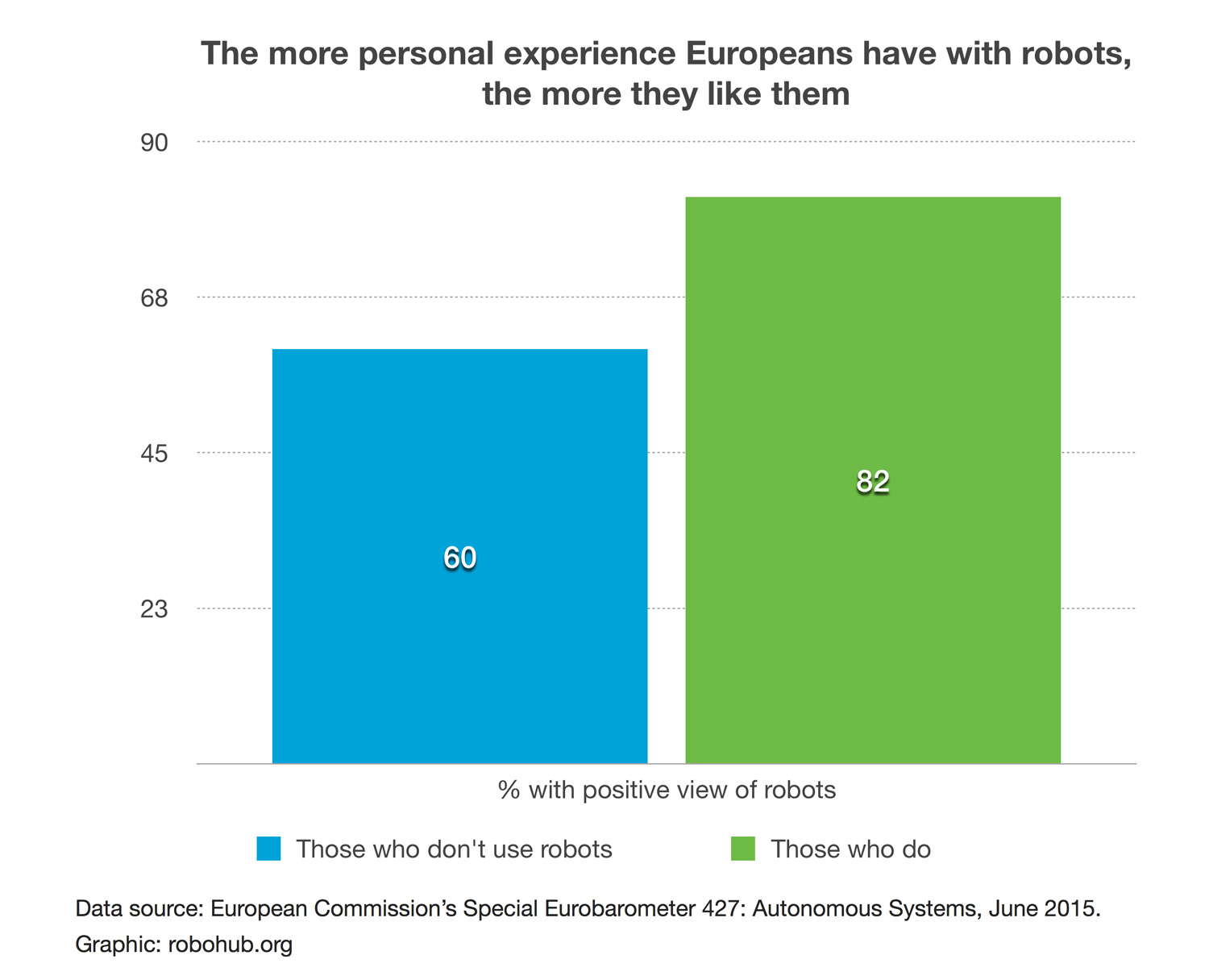
And experience with robots maps to consumer interest, too: 29% of respondents say they would purchase a robot if they have used one already, but only 7% of respondents would do so if they have no experience.
Access the full report: Special Eurobarometer 427: Autonomous Systems
If you liked this article, you may also be interested in:
• Europeans attitudes towards robots 2012
• What does the UK public think about robots? Sciencewise wants to know
See all the latest robotics news on Robohub, or sign up for our weekly newsletter.
tags: c-Politics-Law-Society, cx-Research-Innovation, EU, European Commission, Report


